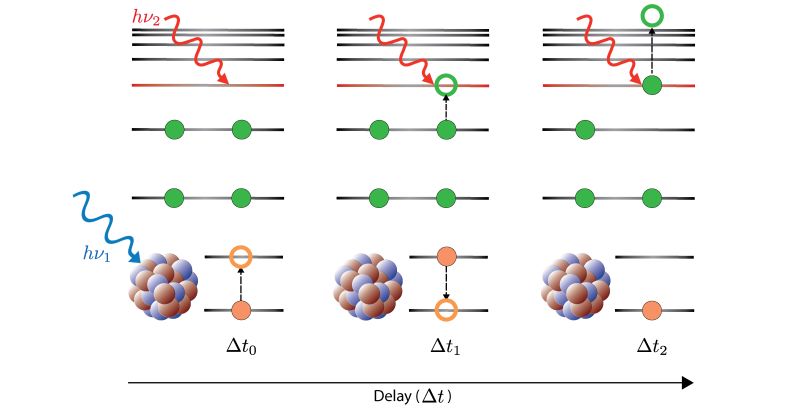Photoelectron dynamics in nuclear transitions

Laser-matter interactions offer a plethora of possibilities to understand and manipulate matter with help of light. One of the aims of our research activities is to include light-nucleus interactions in these studies and to use lasers to interact directly with the nucleus. The surrounding electrons play a crucial role in many light-induced nuclear transitions. For example, 7-Beryllium, which is an indicator of solar activity, decays by capturing an electron in the nucleus. Other isotopes decay by exciting electronic states or inducing ionization. Laser light can be used to initiate, observe in real-time, and potentially control these electro-nucleus energy transfers.
The research team focuses on establishing time-resolved spectroscopy of photo-induced electron dynamics in the study of nuclear transitions. To this purpose, advanced table-top laser sources and isotope sources are developed to photo-excite and study low-energy nuclear transitions. In addition, the mission of the project will be ultimately accomplished by employing cutting-edge free-electron lasers to trigger and control electron motions associated with nuclear excitations. A deep understanding of such processes is likely to have a huge impact on a large range of disciplines. For example, in future we may employ laser-induced electron dynamics to accelerate the production of medical isotopes or to affect the natural decay of radioactive nuclei, with immense benefit for medical and environmental sciences.
This research occurs within the PhotoElement (Time-resolved spectroscopy of photo-induced electron dynamics in nuclear transitions) project, that is funded by the Helmholtz society through a Young Investigator grant. The PhotoElement team is led by Dr. Andrea Trabattoni.